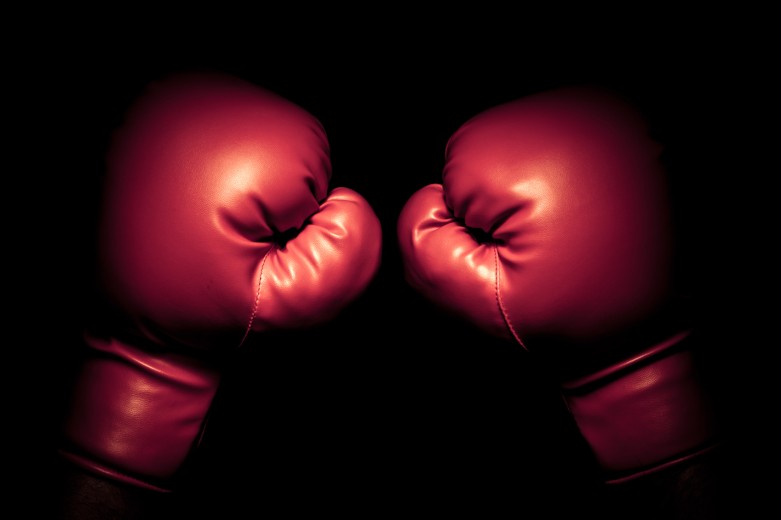As part of Men’s Health Week 2015 we take a look back at a man who faced life threatening adversity head on, never stopped fighting and finished with his hand raised at the end of a long fight with testicular cancer
The Discovery
I had only just turned 30, for me life was just getting started. Working full-time at a major finance company, getting my master’s at night, traveling and hanging out with my friends. Then one morning I had trouble getting out of bed. I felt an unusual pain, like a hammer banging inside my lower abdomen and extending down to my scrotum. As I investigated, I noticed a small lump near my right testicle. The pain lasted several minutes then went away. It returned several hours later. Suddenly, I had trouble walking, sitting and kneeling. I called my doctor and made an appointment for the next day. That night, I searched the web for a condition to explain my symptoms. Everything I found pointed to testicular cancer. I was freaked out. In my gut, I felt like I already knew the answer. I knew about the disease and all I could think was, “will I die from this?” The doctors visit included blood work, a chest X-ray, along with the doctor poking my stomach, back, and scrotum. My self-diagnosis was confirmed: I had Stage 1 testicular cancer.
The Fight
The good news: almost 90% of testicular cancers are curable when caught early. The bad news: the tumor had to be removed before it spread to the rest of my body including my lymph nodes and turned into Stage 2 cancer. As I left the doctor’s office, I was confused and angry – how had this happened? I was physically fit, worked out all the time, didn’t smoke or do drugs. I felt like everything I had done was for nothing. How did I manage to get life-threatening illness when others around me who abused their bodies didn’t even catch the flu? After getting over the initial shock and anger I followed the doctor’s orders and scheduled surgery to have the tumor removed. This would be followed by six to eight weeks of radiation. When I was younger, I had been an amateur fighter; it taught me to control my fears, remain calm and prepare myself for adversity in, and out, of the ring. I drew upon those lessons so that I would not feel overwhelmed emotionally, at the potential outcomes that lay ahead. I psyched myself into believing and feeling this was like any other challenge. Mostly, I wanted to get it over with and get back to normal. Later I realized that what I used to know as “normal” would not really be the case for me going forward.
After the surgery, I was in severe pain. I could barely walk and had trouble sleeping. I was grateful that my cousin Linda, the first person I trusted to tell what was happening, drove me to the hospital, stayed with me there and drove me home. She was a nurse and would be aware of things that I wasn’t in case anything went wrong. At my follow up appointment, the doctor informed me radiation was no longer an option. After examining the tumor and conducting additional tests he learned it was an aggressive germ-cell tumor. He strongly believed the cancer had already started to spread and was possibly Stage 2. He recommended another surgery, Retroperitoneal Lymph Node Dissection (RPLND). It would involve cutting me open and removing the abdominal lymph nodes; it had high risks including nerve damage that could cause infertility, potential immobility, bowel obstructions, and two to three months of recuperation. The doctor was very honest and recommended that I get a second opinion because of how serious the procedure was.
The fear and by extension, rage, I felt were inexplicable. When I left the doctor’s office, I must have punched several newsstands on the walk home. I couldn’t understand how things were getting worse. My mind raced: first Stage 1 cancer, now possibly Stage 2. Could my body handle another surgery so soon? When was this nightmare going to end? Why was this happening to me? When thinking of all the risks involved, I worried about whether I would ever have sex again, whether I’d use the bathroom normally or be able to walk right away. Time was of the essence, so I read everything I could about doctors who specialized in testicular cancer and get a second opinion from the right person. I learned about a specialist at Memorial Sloan Kettering Hospital who had performed hundreds RPLND surgeries while minimizing many risks. I made an appointment and saw him. He reviewed the results of my first surgery and conducted his own exam. He also recommended I get the surgery; lucky for me he also agreed to do it.
As the day of the surgery drew closer, I was pretty calm. I managed to control my fears. I felt confident that I would survive and be ok because I had one of the best in the world handling my operation. For me it was like having legendary boxing trainer Emmanuel Steward in my corner. Also, thanks to friends and family, both near and far who offered their support, I felt very much at ease. The morning after the surgery, the doctor came to check up on me to see how I was feeling. It turned out my recovery was on schedule. Soon after, I learned of all the lymph nodes that were removed; only a few had cancer cells. I wouldn’t need to go through chemo. Instead, I would have to follow a strict series of appointments for the next five years to monitor my condition. If the cancer returned, it would be caught early.
I spent the next several months recuperating at home and going to the hospital for X-rays, CAT Scans and blood work to make sure the cancer hadn’t returned. Once the doctor confirmed my cancer was in remission, it was the biggest sense of relief. I could go back to my life pre-surgery. The nightmare was over, sort of. I would still have monthly check up’s for the first year; six times a year the second, and so forth. It would ensure the cancer stayed in remission.
The Victory
Ten years later I remain cancer free, a milestone for those who have or had the disease. Yet, I’ll never be truly free of cancer and all that comes with it. You see, there will always be check up’s, the huge scar on my body, experiencing “false-positive” exams when tests wrongly indicate that that the disease may have returned. You always live in some fear that it can come back, especially when you hear a story of a fellow patient that relapsed and passed away.
The Lesson
I’m most grateful that I didn’t ignore my symptoms; I saw a doctor right away and spent time doing research. My hours spent reading helped me find the specialist who performed my second surgery. I feel like he saved not just my life, but shielded me from the risks associated with that operation. I also learned what questions to ask the doctors as well as how to monitor my health going forward.
With anything that happens in my life, good or bad, I always try to see what I can learn from it. I believe I’ve gained additional emotional strength to handle adversity and gained perspective on what’s really important. A bad day at work or a stressful situation are nothing when I remember being sick. If I can overcome cancer, I can overcome any situation. It also gave me better perspective on what’s really important in life. After this experience, I don’t stress or fear many of the things that other people do. I understand the bigger picture and know that if a job, relationship or anything else isn’t fulfilling, I don’t waste my time with it. I know it could be “game over” for me anytime. I also gained “extra energy.” I want to experience as much as I can while I’m alive so my desire to live and experience while I’m here is super high. Of everything I’ve accomplished since being diagnosed, my proudest achievement is getting up every morning in good health and cancer-free.
*Names have been changed

